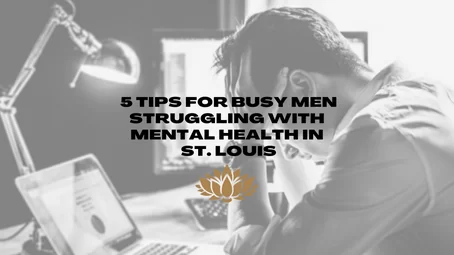Hey there! If you’re reading this, chances are you’ve been feeling a lot lately. Maybe it’s the overwhelming rush of emotions that hit out of nowhere or the way one small thing can send you into a tailspin. You’re not alone! It’s totally normal to feel big emotions, especially when you’re going through this stage of life. But the good news is, that you can learn how to manage them and find ways to feel better when everything seems out of control.
Let’s break down some tips that can help you navigate the emotional rollercoaster of being a teen. You’re learning about who you are, testing boundaries, and facing challenges all while trying to figure out how to be you. That’s a lot. But with a little guidance, you can turn those emotions into something manageable and even empowering!
1. Understand That Your Brain Is Changing
One reason you may feel like your emotions are out of whack is that your brain is still developing. The teen years are when your brain is going through some major upgrades, especially in areas that deal with emotions, decision-making, and impulse control. This means that sometimes your emotions might feel super intense, and it can be hard to keep them in check.
- What to do: Remind yourself that what you’re feeling is a normal part of growing up. Your brain is working hard to figure things out, and sometimes that makes it feel like you’re on an emotional rollercoaster.
- Why it helps: Recognizing that your feelings aren’t “wrong” or “crazy” helps you be more patient with yourself. You’re not alone—lots of teens are going through the same thing!
2. Breathe Through the Moment
When everything feels too much, it can be easy to spiral into frustration, anger, or sadness. The trick is to pause and take a few deep breaths before reacting. It sounds simple, but it can make a huge difference in how you handle the situation.
- What to do: If you feel like you’re about to lose it, try this quick breathing exercise:
- Breathe in slowly for 4 seconds.
- Hold your breath for 4 seconds.
- Breathe out slowly for 4 seconds. Repeat a few times until you feel a little calmer.
- Why it helps: Deep breathing activates your calm-down response, which can help you feel less overwhelmed. It’s like hitting the reset button for your emotions.
3. Talk to Someone You Trust About Your Emotions
Sometimes, your emotions might feel too heavy to carry alone, and that’s okay. Talking to someone—whether it’s a friend, a family member, or a therapist—can really help you process what you’re going through.
- What to do: Find someone you feel comfortable opening up to. Let them know how you’re feeling and what’s been on your mind. You don’t have to have all the answers, just share what’s going on.
- Why it helps: Talking to someone who listens and doesn’t judge you can help release a lot of the emotional pressure. Plus, they might even offer advice or insight that helps you see things from a new perspective.
4. Practice Self-Care: Treat Yourself with Kindness
It’s easy to beat yourself up when things aren’t going the way you want. But being hard on yourself only makes things worse. Self-care isn’t just about bubble baths or face masks—it’s about treating yourself like you would treat a friend who’s struggling.
- What to do: Do things that help you relax and feel good. Whether it’s going for a walk, journaling, listening to music, or just hanging out with people who make you laugh, make time for activities that bring you peace.
- Why it helps: When you practice self-care, you’re giving yourself permission to slow down and take care of your mental health. It helps you feel more balanced and better equipped to handle tough emotions.
5. Understand the Power of Your Emotions
Your emotions are powerful—they’re trying to tell you something important. Sometimes they’re a signal that something in your life needs attention, like stress from school, a conflict with a friend, or pressure from your family.
- What to do: Take a moment to check in with yourself when you’re feeling a big emotion. Ask yourself, “What is this feeling trying to tell me? What’s going on in my life right now that might be contributing to this?”
- Why it helps: When you identify the cause of your emotions, it’s easier to take action to improve the situation. It might mean talking to someone, setting better boundaries, or finding a new way to cope with stress.
6. Set Healthy Boundaries
Sometimes, big emotions come from feeling overwhelmed by the expectations or demands of others. Whether it’s schoolwork, family pressure, or social drama, it’s important to set boundaries to protect your emotional well-being.
- What to do: If you feel like you’re being stretched too thin, it’s okay to say no. Whether it’s a request from a friend or an extra assignment from school, be clear about what you can handle. Practice saying things like, “I’m feeling really stressed right now, so I need to take a break.”
- Why it helps: Setting boundaries helps you feel in control of your life and emotions. You get to decide what you need and when you need it, which makes managing your feelings easier.
7. Therapy: A Safe Space to Work Through Your Emotions
If your emotions feel especially overwhelming or hard to control, therapy for teens can be a game-changer. A therapist is there to help you explore your feelings, understand why you’re feeling the way you do, and give you tools to cope in healthy ways.
- What to do: If you’re feeling stuck or like you don’t know how to manage your emotions, consider talking to a therapist. Therapy can provide a safe, non-judgmental space where you can process your thoughts and work on strategies for emotional balance.
- Why it helps: Therapy for teens gives you the opportunity to talk through your challenges with someone who understands and can guide you through the process. It’s a supportive way to build emotional strength and resilience.
Absolutely! Let’s add a section on how maintaining a connection with your parents—or another trusted adult—can be super helpful during the teen years, even if it feels impossible at times. This will offer a balanced perspective and emphasize the importance of relationships, while also acknowledging the natural frustrations teens feel with their parents.
8. Maintaining a Connection with Your Parents (Even When They’re the “Most Annoying People Ever”)
Let’s be real: sometimes it feels like your parents are just out to ruin your life. They don’t understand you, they’re constantly on your case, and they always seem to know how to push your buttons. You’ve probably had moments when you thought, “They just don’t get me!”—and guess what? That’s totally normal. But here’s the thing: even though your parents might seem super annoying at times, they’re still your parents. They want to be there for you and support you, even if it doesn’t always feel that way.
- What to do: Even when your parents are pushing you to do things you don’t want to do or acting like they know better, try to take a step back and think about what’s really going on. Are they worried about you? Are they trying to help you? Yes, they might seem out of touch sometimes, but they’re likely coming from a place of care.
If you can, try to open up to them about what you’re going through. It doesn’t have to be a huge conversation every time, but letting them in even a little bit can make a big difference. For example, you might say something like, “I’m feeling a lot of pressure at school, and it’s stressing me out” or “I just need some space right now.” This helps them understand you better and, hopefully, they’ll give you the space or support you need. - Why it helps: Parents can be a huge support system, especially if you’re going through a tough time. They might not always know what to say or how to help, but if you let them in, they can offer advice, a listening ear, or just a comforting presence when you need it most.
If you’re not feeling close to your parents or you think they’re just too annoying to talk to, it’s okay to lean on another trusted adult. This could be a teacher, a family friend, a coach, or even a therapist. Having another healthy adult in your corner can give you the space to process what’s going on and help you get through the ups and downs of being a teenager.
- What to do: Look for an adult who you feel safe with and who is willing to listen to you without judgment. This person doesn’t have to have all the answers, but just having someone you can talk to can make a big difference.
- Why it helps: Having that kind of support, especially from someone who gets it, can give you the emotional backup you need. It can help you feel less alone and more equipped to face whatever challenges come your way.
You’ve Got This! Emotions and All.
Your big emotions are part of the journey of growing up, and they don’t define who you are. By learning to manage them, understanding what triggers them, and finding healthy ways to cope, you can navigate this time with more ease. Remember, it’s okay to ask for help—whether it’s talking to a trusted adult or seeking therapy for teens. Your feelings matter, and with the right tools and support, you can work through anything that comes your way.
Start Therapy for Teens in the St. Louis Area
If you live in the St. Louis metro area and are ready to improve your mental health, our expert St. Louis therapists are here to help. Not only do we have a team of therapists in Ballwin, MO, but we have also recently expanded to serve the Lake St. Louis and Wentzville area! Reach out to our Client Care Coordinator today to discuss your therapy options, both in-person and via online therapy in Missouri.
Contact Us!
Learn About Our Group Offerings

Additional Counseling Services at Marble Wellness in St. Louis, MO
Our counseling services are designed to help set you on a path of living a more fulfilled, calm, and happy life. Our incredible team of STL-based therapists has a variety of training backgrounds and areas of expertise. We specialize in anxiety, depression, grief, chronic illness, therapy for men, couples, and maternal overwhelm. Our practice also helps new moms with various postpartum concerns, moms in the thick of parenting, and moms with teens. We can also chat from wherever you are in the state with online therapy in Missouri. No matter where you are in your mental health journey, we would love to support you.



